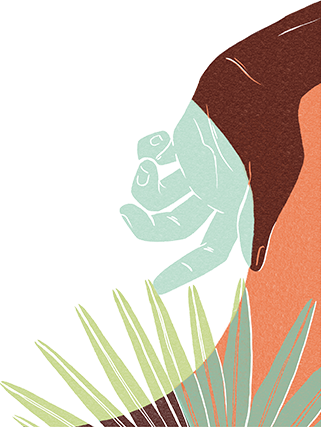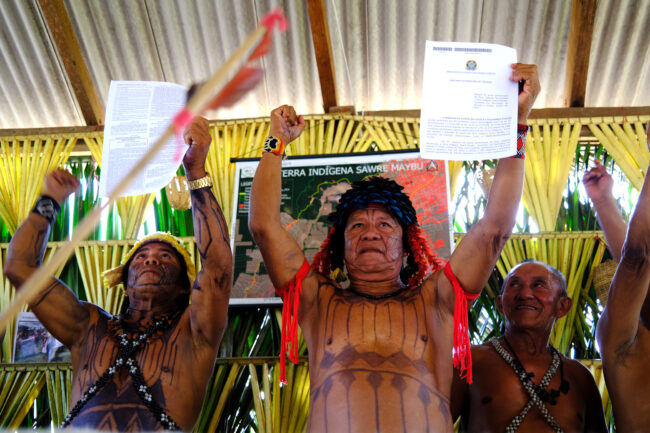 17.12.2024
17.12.2024
Demarcation of the Sawré Muybu Indigenous Land: a historic victory for the Munduruku people
The celebration marked a decisive step in the fight to guarantee rights and recognition of Indigenous territory.
The signing of the declaratory ordinance for the Sawré Muybu Indigenous Land, in Pará, in September 2024, after decades of mobilization, represents a historic achievement for the Munduruku people and a milestone for the protection of the Amazon. With over 178,000 hectares officially recognized by the Ministry of Justice, the decision strengthens Indigenous rights and reaffirms the importance of environmental preservation.
The demarcation is a remarkable victory for the Munduruku people, whose persistent struggle has faced both historical and contemporary challenges. Alessandra Korap Munduruku, Indigenous leader and socio-environmental activist, highlights the significance of this achievement for the survival and preservation of Indigenous territories.
“The importance of the territory for us is all life: the river, the forest, the children who depend on it, the animals, and the seeds, which are the cure for our bodies,” said Alessandra.

Alessandra Korap Munduruku. Photo: Attilio Zolin/Casa Fund.
On November 4th and 5th, the Munduruku people held a celebration to mark progress in the demarcation process. The event brought together Indigenous leaders, children, adults, and partners, such as the Casa Socio-Environmental Fund, which was present to support this historic achievement.
The event symbolized the resilience of the people and emphasized the importance of continuing to strengthen territorial management. The Munduruku have already begun physically marking the area through a self-demarcation process, taking on the responsibility to protect their lands even before the official decision.
The long journey of resistance
The demarcation process began in 2004, but the struggle for the Sawré Muybu Indigenous Land dates back much further. For decades, the Munduruku faced challenges such as invasions by land grabbers, illegal miners, and loggers, as well as large infrastructure projects, such as the Tapajós River hydroelectric complex, which threatened to devastate the region. Although territorial identification studies were completed in 2012, demarcation was delayed for over ten years due to political and economic obstacles.
The delay in land regularization exposed the Munduruku people to situations of vulnerability, including mercury contamination in the rivers. Amid these challenges, Indigenous leadership stood out with the creation of tools such as the Munduruku Consultation Protocol, which is essential to ensure that decisions affecting their territory respect their right to free, prior, and informed consultation. The consultation protocol guarantees respect for the rights and autonomy of Indigenous communities, promoting active participation in decisions about their territory and way of life.
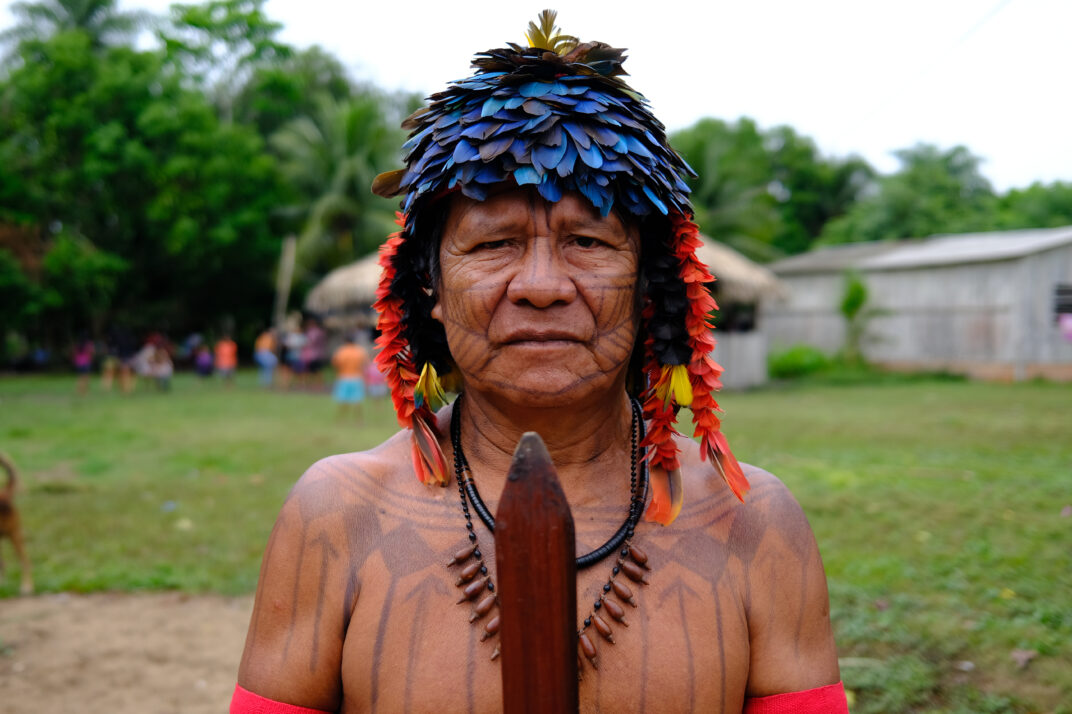
Juarez Saw Munduruku, chief of the Sawré Muybu Village. The achievement of the demarcation of the Indigenous Land is the result of decades of struggle and resistance by his people. Photo: Attilio Zolin/Casa Fund.
For Chief Juarez Saw Munduruku, the protocol was a decisive tool in defending the rights of the Munduruku people. “It made it difficult for the government to interfere and ensured that we are consulted in our way, not theirs. It was fundamental to stopping licenses and projects that threatened our territory,” he stated.
The construction of the protocol brought together various communities from the Upper and Middle Tapajós, including the Munduruku, riverine dwellers, and other peoples. This coordination strengthened local resistance, helping to block predatory projects, such as large hydroelectric dams planned for the region. “We worked together, and that gave us the strength to protect our sacred history and memory,” Juarez emphasized.
The demarcation of Indigenous Lands (IL), guaranteed by the 1988 Constitution, follows a complex process, including studies, approval by Funai, presidential ratification, and registration in official land registries. However, this process is often delayed by political, legal, and social obstacles that prolong its completion. Structural changes, such as guaranteeing territorial rights, require ongoing support and diverse strategies, demonstrating that, while lengthy, these struggles can bring about significant transformations through perseverance and coordination.
“The struggle for the demarcation of Indigenous lands is a long and challenging process that requires multiple strategies and a lot of joint work. These are important changes that only happen with continuous and consistent support over time. But these changes come, because the strength, resilience, and leadership of Indigenous communities prove at every step that it is possible to overcome what seems impossible,” highlights Cristina Orpheo, executive director of the Casa Socio-Environmental Fund.
The fight for demarcation involved both local and national mobilizations, as well as strategies of resistance and political coordination. Alessandra Korap Munduruku also emphasizes the role of consultation protocols created by Indigenous peoples themselves, ensuring the participation of the entire community. “The protocol came to strengthen us, guaranteeing that everyone—children, women, chiefs, elders—are consulted according to what we decide,” she explained.
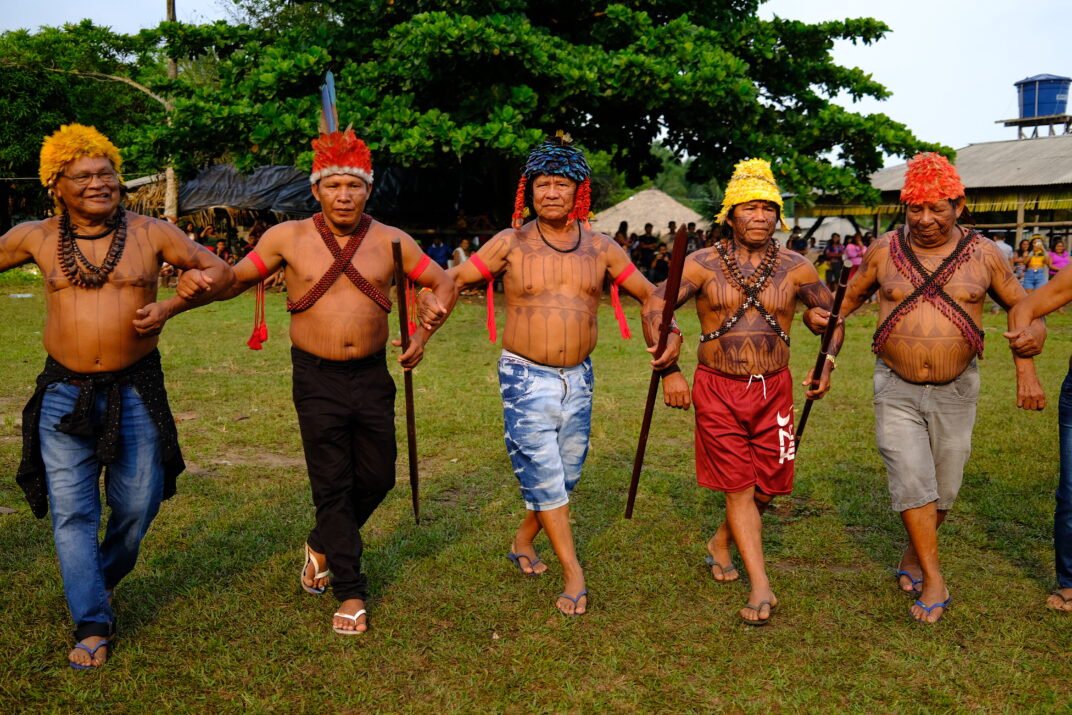
The ceremony celebrating the demarcation of the Sawré Muybu Indigenous Land featured festivities, traditional songs, and dances of the Munduruku people. Photo: Attilio Zolin/Casa Fund.
She also mentioned the support of organizations like the Casa Socio-Environmental Fund in this process, which helped strengthen the autonomy of the Munduruku people. “The Casa Fund gave us the opportunity to develop projects within the territory, working with women, chiefs, and youth, respecting our reality and strengthening our association.”
The Leadership of Munduruku Women in Defending Their Territories and Culture
Munduruku women have been key protagonists in the mobilization to defend their territory and preserve their culture. Leaders such as Maria Leusa Munduruku and Alessandra Korap Munduruku played decisive roles, coordinating political advocacy efforts and promoting economic alternatives for the communities. The region’s main associations, Pariri and Wokoborun, have become essential spaces for autonomy and cultural strengthening, driven by these female leaders who remain active in the fight for Munduruku rights.
Maria Leusa Munduruku highlights the importance of women in strengthening the Munduruku movement: “We have faced many challenges, but we continue to fight. The Casa Fund helped us develop projects that respect our reality, strengthening the autonomy of women, chiefs, and youth.” These initiatives include activities ranging from income generation to territorial monitoring projects and the production of traditional medicines, reducing economic dependence on mining.
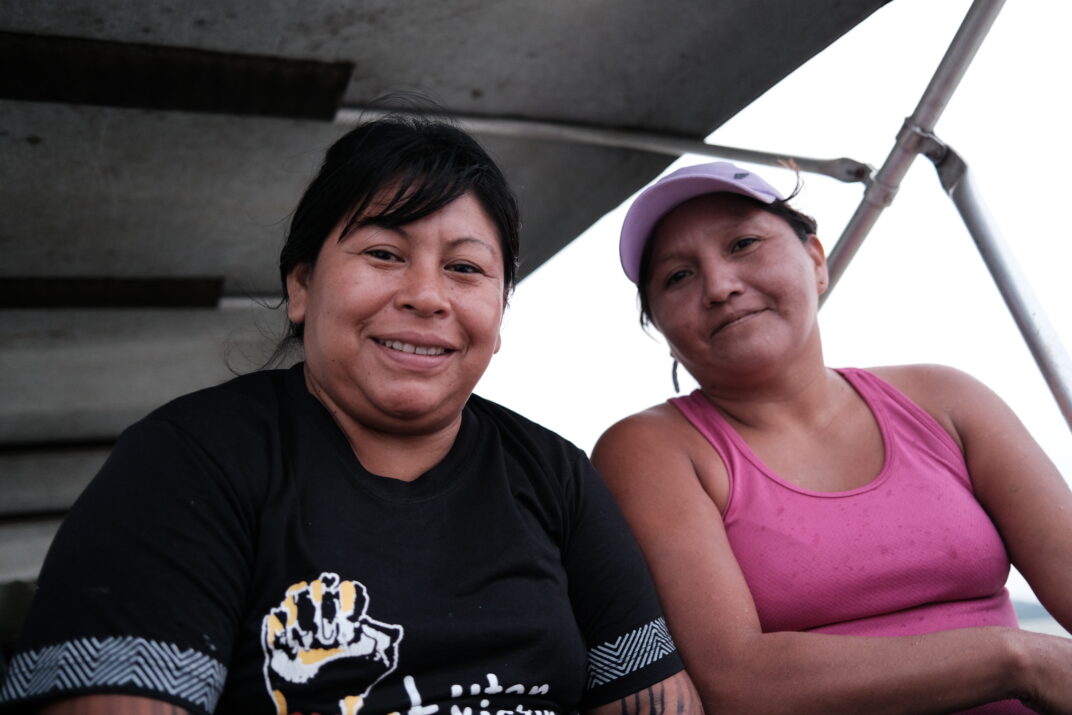
Alessandra and Maria Leusa are symbols of the defense of the Munduruku people’s territories and culture. Photo: Attilio Zolin/Casa Fund.
Alessandra Munduruku highlighted the challenges faced during the demarcation process, such as the high logistical costs of mobilizing communities and the need to resist economic interests that put pressure on Indigenous territories. “The greed for our territory is immense. It’s hydroelectric dams, roads, mining, and land grabbing. But we do not live off deforestation or gold; we live off life: the forest, the river, and the territory,” she stated.
Alessandra also pointed to ongoing threats in the National Congress, where legislative proposals aim to limit Indigenous rights. “They create constitutional amendments to try to sell our lands and stop our demarcation. But our resistance is strong. We will keep fighting, training young people, empowering women, and preserving our territories for future generations,” she concluded.
Award-Winning Women
Alessandra Korap Munduruku received the Goldman Environmental Prize in 2023 for her leadership in the fight against mining in the Amazon. The Goldman Prize is one of the world’s most prestigious environmental awards, often referred to as the “Green Nobel.” Alessandra played a key role in mobilizing her community against Anglo American’s mineral exploration project, which sought to extract copper in Pará and Mato Grosso. The organized resistance led by Alessandra resulted in the company abandoning the project in 2021.
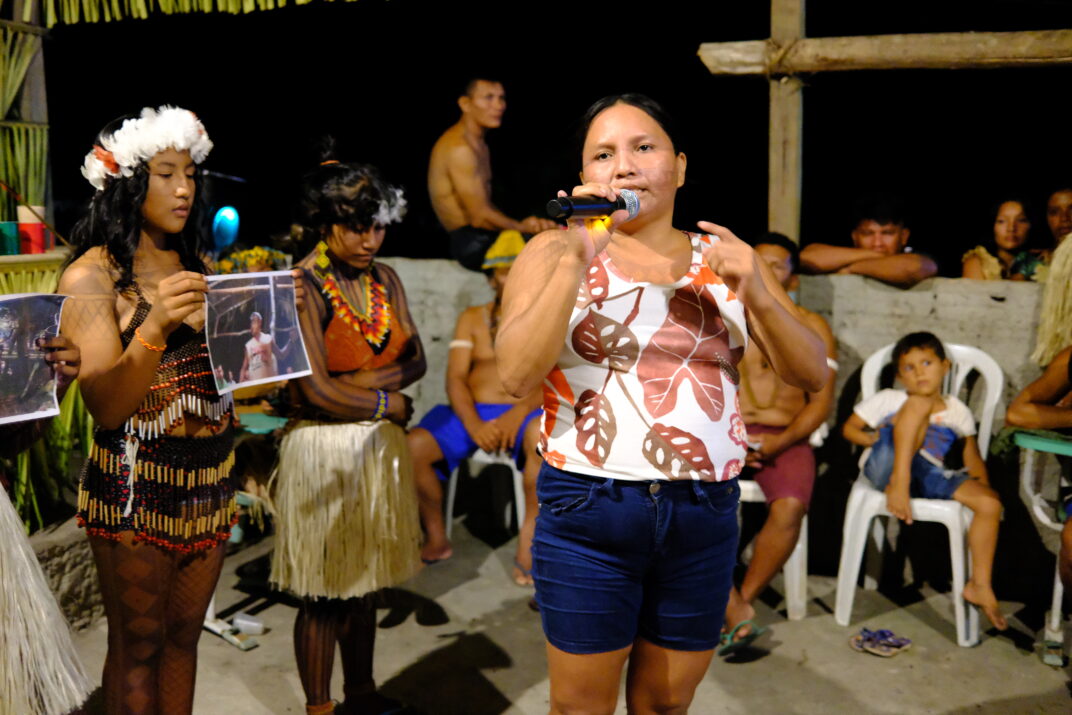
Maria Leusa Munduruku. Photo: Attilio Zolin/Casa Fund.
Maria Leusa Munduruku was also honored with the United Nations Equator Prize during COP 21 in Paris, alongside Rozeninho Saw Munduruku, a Munduruku leader. This recognition was awarded for their resistance against the hydroelectric dams planned for the Tapajós River in Pará and for the self-demarcation of the Sawré Muybu Indigenous Land, a fundamental initiative for the protection of their territory. The Equator Prize celebrates communities that, through conservation and the sustainable use of natural resources, contribute to poverty reduction and environmental preservation.
Support from the Casa Socio-Environmental Fund: A Strategic Partnership
Over the years, the Casa Socio-Environmental Fund has been a strategic partner in the Munduruku people’s struggle for the demarcation of their territories. Since 2006, Casa Fund has provided over 80 grants, totaling nearly R$3 million (about US$ 600,000.00) invested in actions that strengthened community organizations. These resources made it possible to hold gatherings, workshops, self-demarcation expeditions, and mobilizations in Brasília, significantly contributing to the defense of their rights and territories.
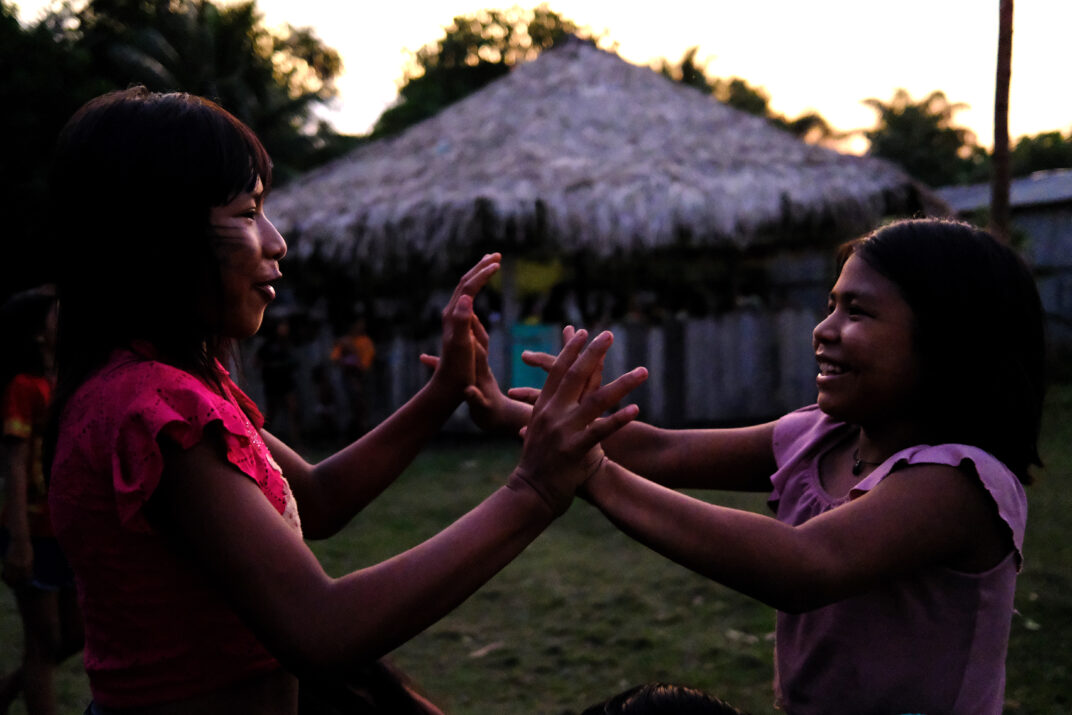
The defense of territories is the greatest guarantee for future generations of the Munduruku people. Photo: Attilio Zolin/Casa Fund.
Maíra Krenak, program manager at the Casa Socio-Environmental Fund, believes that the demarcation of Indigenous lands is essential to guarantee the territorial rights of Indigenous peoples, ensuring their physical, cultural, and spiritual survival.
“These are sacred territories where traditions, ways of life, and ancestral knowledge are preserved. Furthermore, demarcation is a tool for protection against threats such as deforestation, land grabbing, hydroelectric plants, and other predatory activities,” emphasized Maíra Krenak, program manager at the Casa Fund.
Maria Leusa highlighted the fund’s role: “Casa Fund was like a mother to us. It helped us stand up during moments of despair, providing resources to sustain our resistance.” Additionally, the fund directly supported the development of the Munduruku Consultation Protocol, bringing together partners such as FASE and the Federal Public Prosecutor’s Office (MPF).
The flexibility of Casa Fund was also highlighted. “They understand our reality. They are not bureaucratic and allow project adjustments during emergencies in the territory,” explained Maria Leusa. This ongoing relationship helped the Munduruku access other international funders, expanding their autonomy and capacity to face challenges.
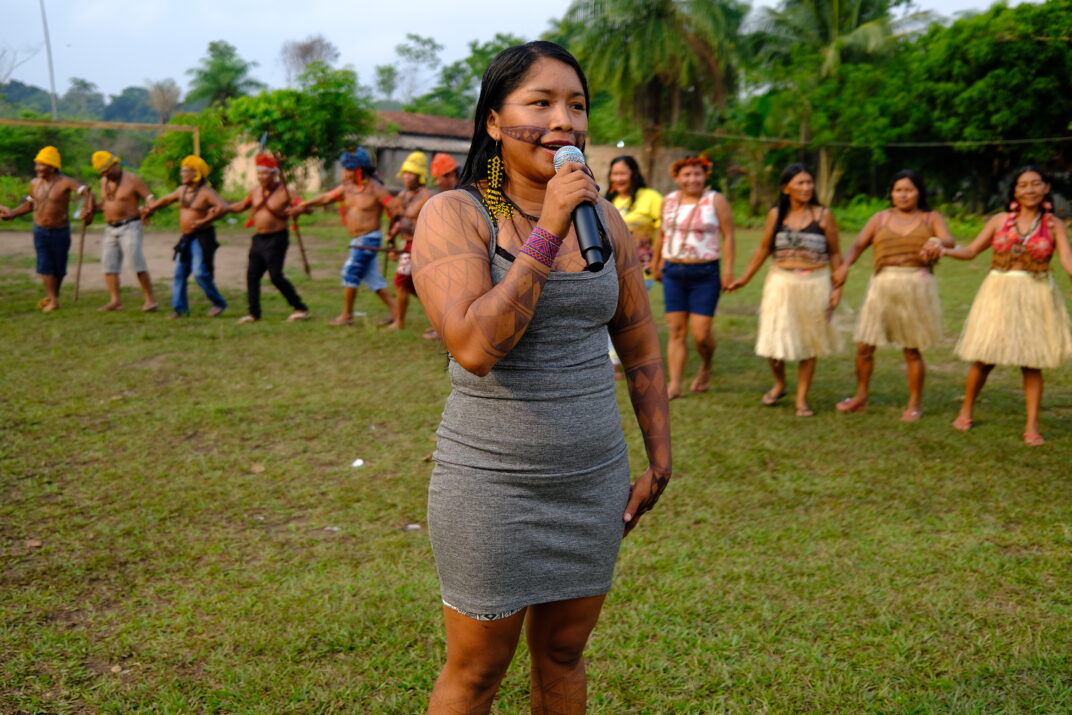
Aldira Akay Munduruku is a young leader who stands out for her work in defending the territories and culture of the Munduruku people. Photo: Attilio Zolin/Casa Fund.
For Maíra, “it is an honor for the Casa Fund to be among the partners of the Munduruku people in this process, and it is a great joy to celebrate this important step in the demarcation process. We will continue to support the initiatives of the Munduruku people in their territories, ensuring they are increasingly protected so that future generations can continue holding up the sky.”
A Victory for the Amazon and for the World
The demarcation of the Sawré Muybu Indigenous Land is more than a victory for the Munduruku people; it is a milestone in the preservation of the Amazon. Even with this victory, the struggle of the Munduruku is far from over. Chief Juarez emphasized the need to demarcate other territories, such as the Sawré Bap’in Indigenous Land, and warned about threats in the National Congress, where legislative proposals seek to weaken Indigenous rights.
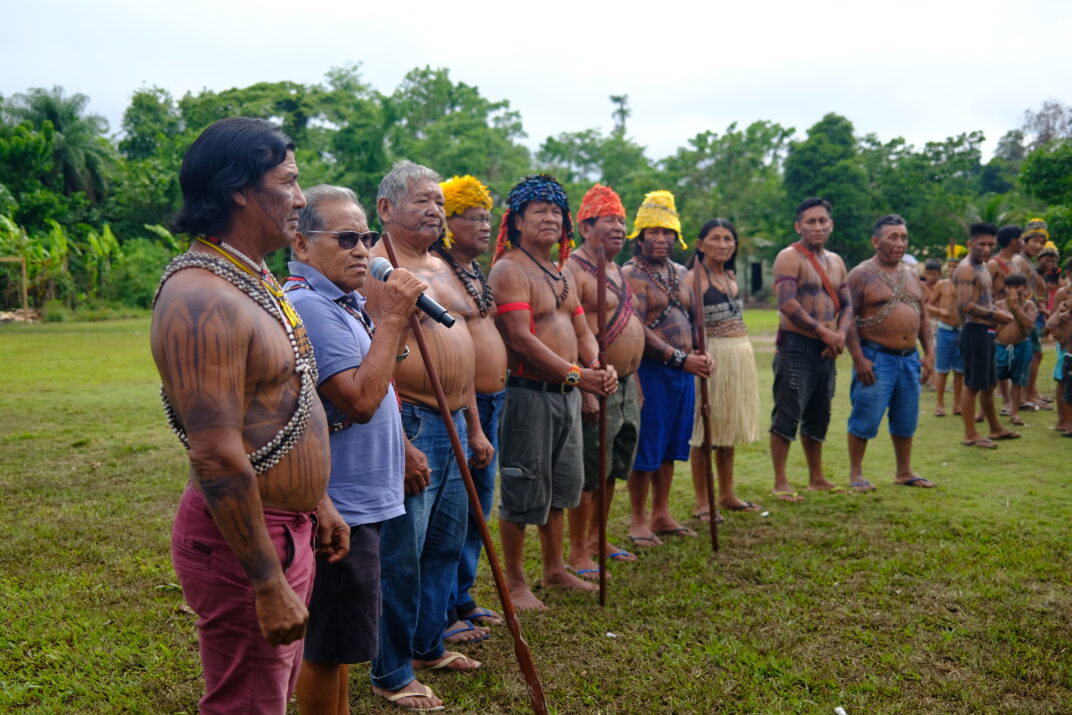
Munduruku leaders gather to celebrate the demarcation of the Sawré Muybu Indigenous Land in Pará. Photo: Attilio Zolin/Casa Fund.
The chief emphasized the importance of support from partners and funders. “The support we received was very important. Without it, we wouldn’t have been able to carry out the self-demarcation expeditions. Our struggle has not stopped and needs to continue.”
The story of the Munduruku people in the fight for the demarcation of Sawré Muybu is an example of resilience, community organization, and political coordination. With the support of partners like the Casa Socio-Environmental Fund, the Munduruku have shown that it is possible to confront powerful economic interests and protect not only their territories but also the future of the Amazon and the planet.
“We are here today, fighting for the future of the next generations. This territory is not just mine; it is for our grandchildren,” concluded Chief Juarez, echoing the strength of a struggle that inspires Indigenous communities across Brazil.
Click here to watch the mini-documentary about this milestone for the Munduruku people.
